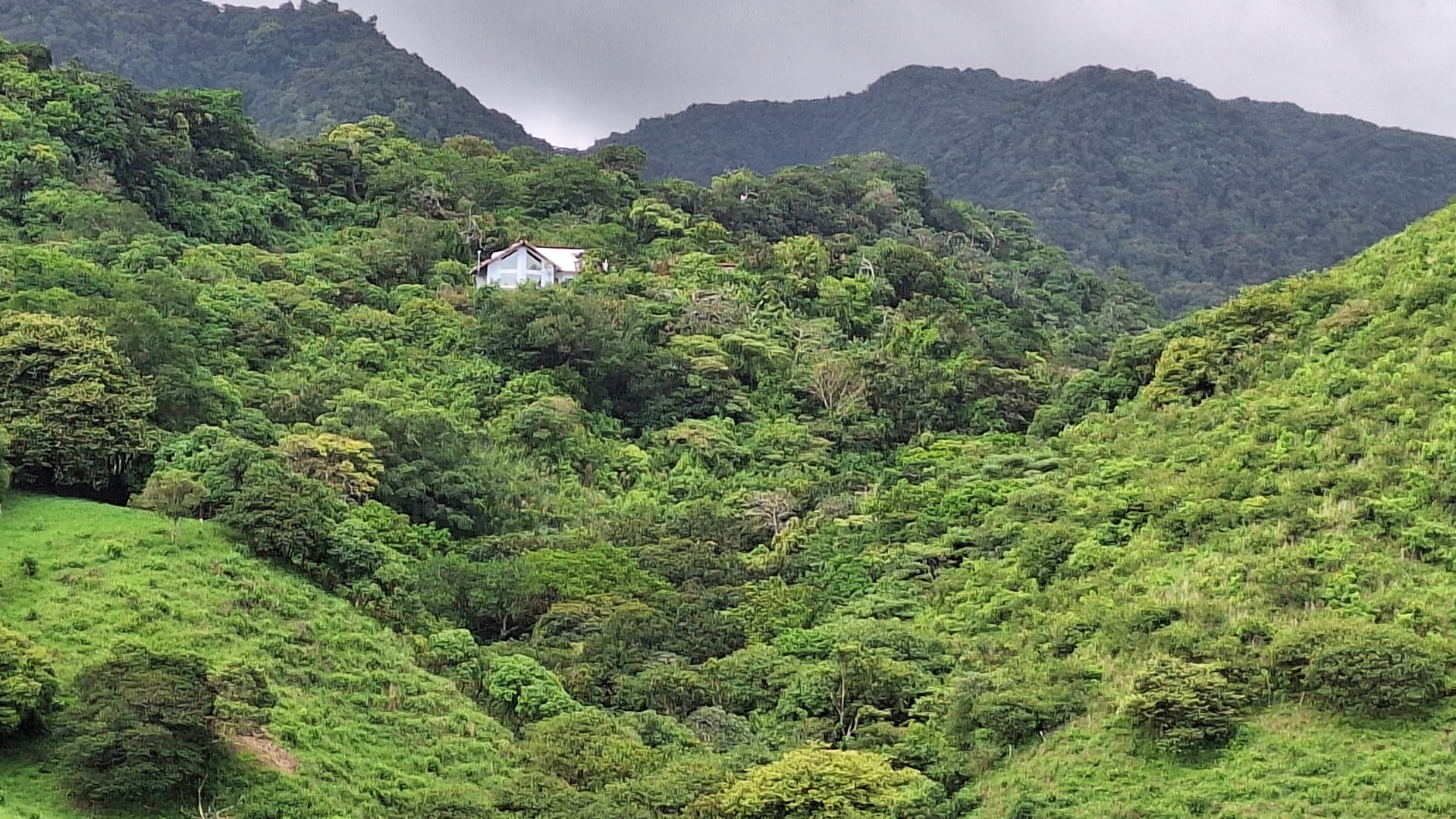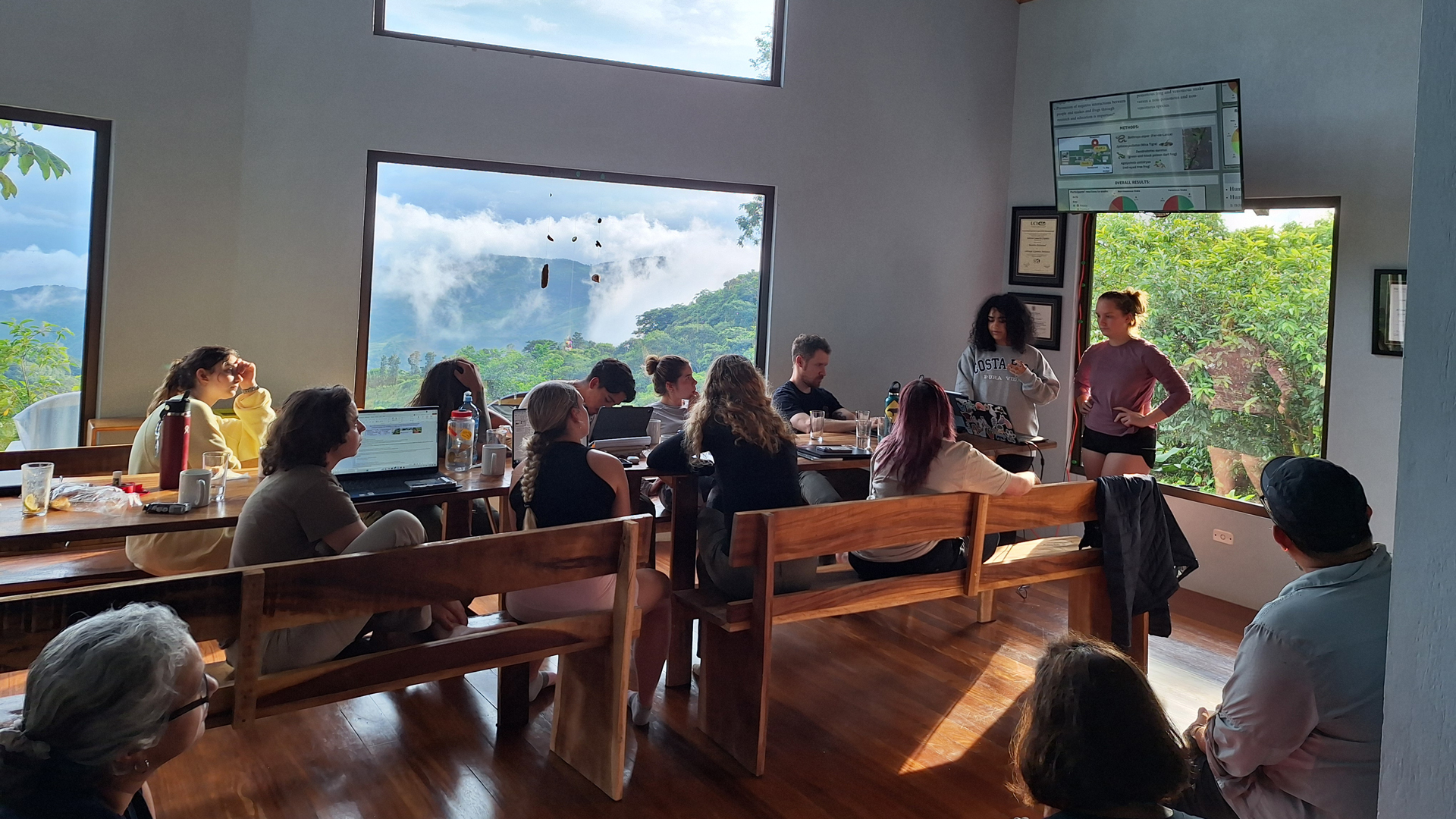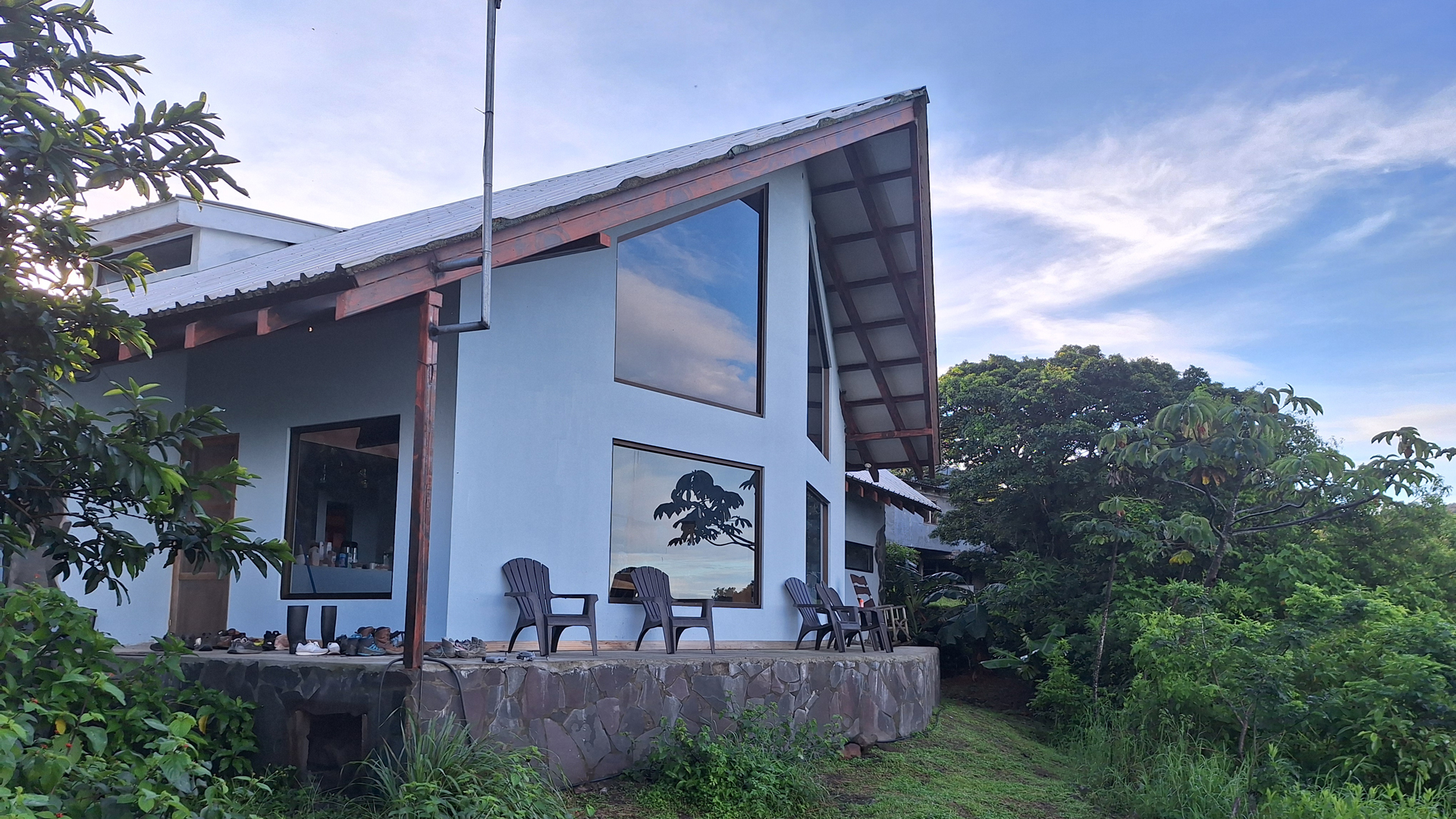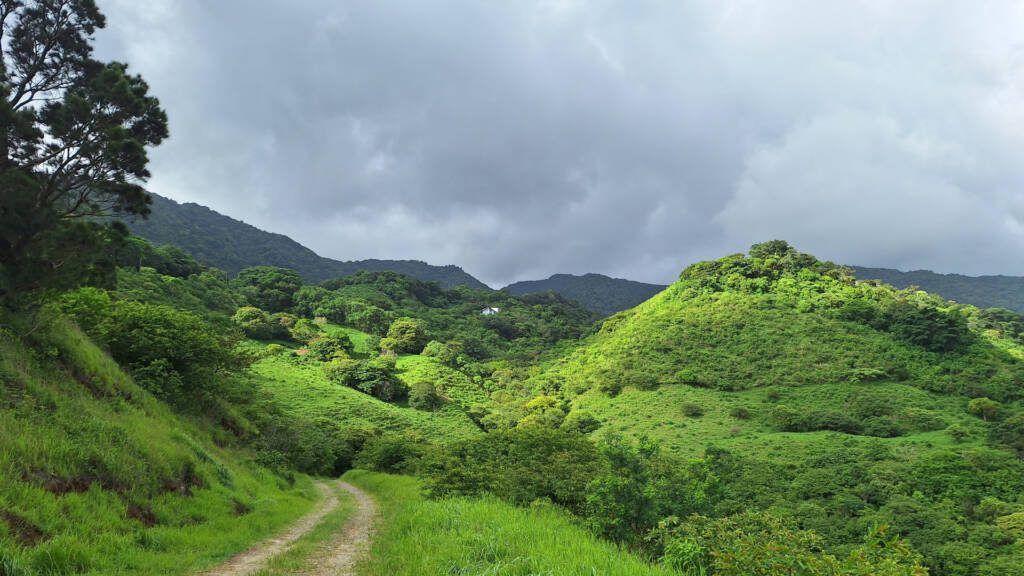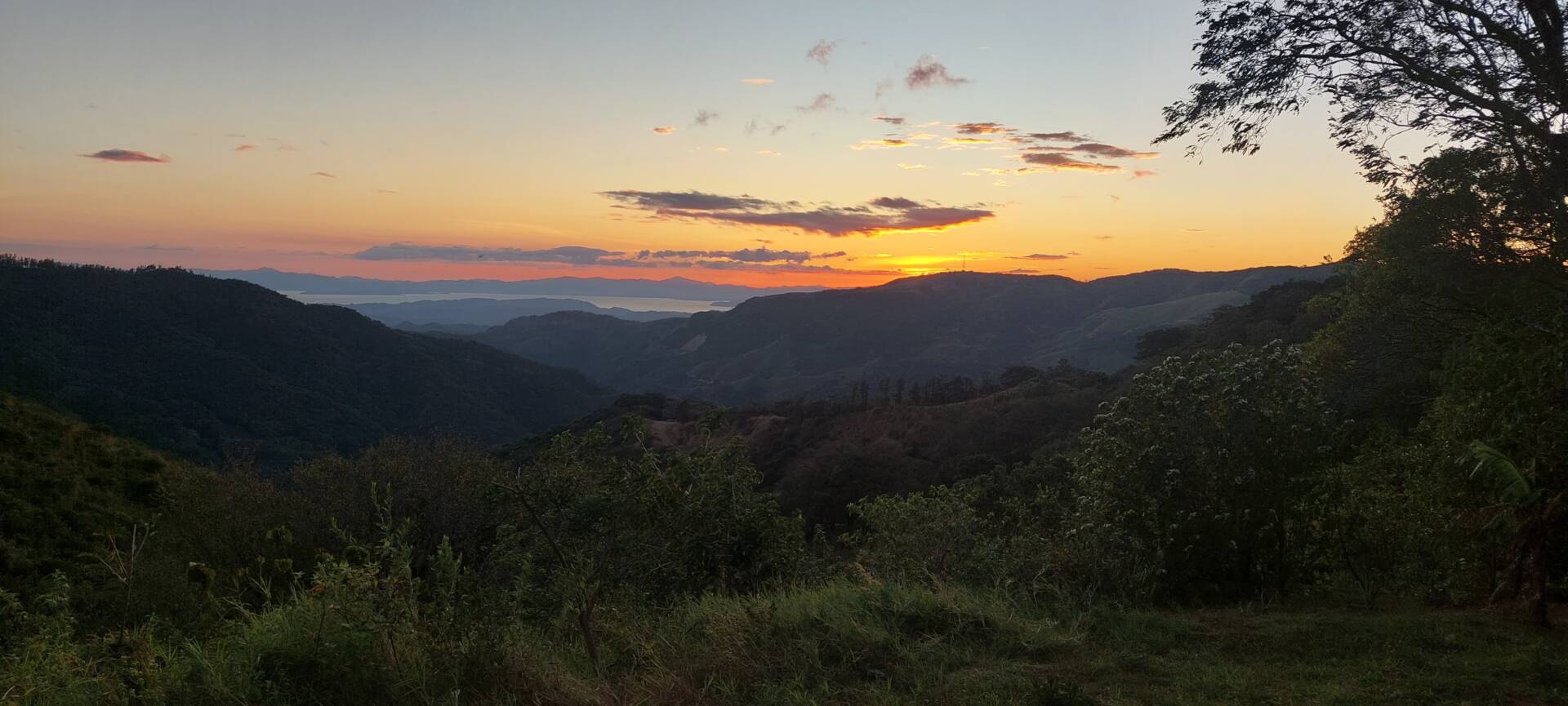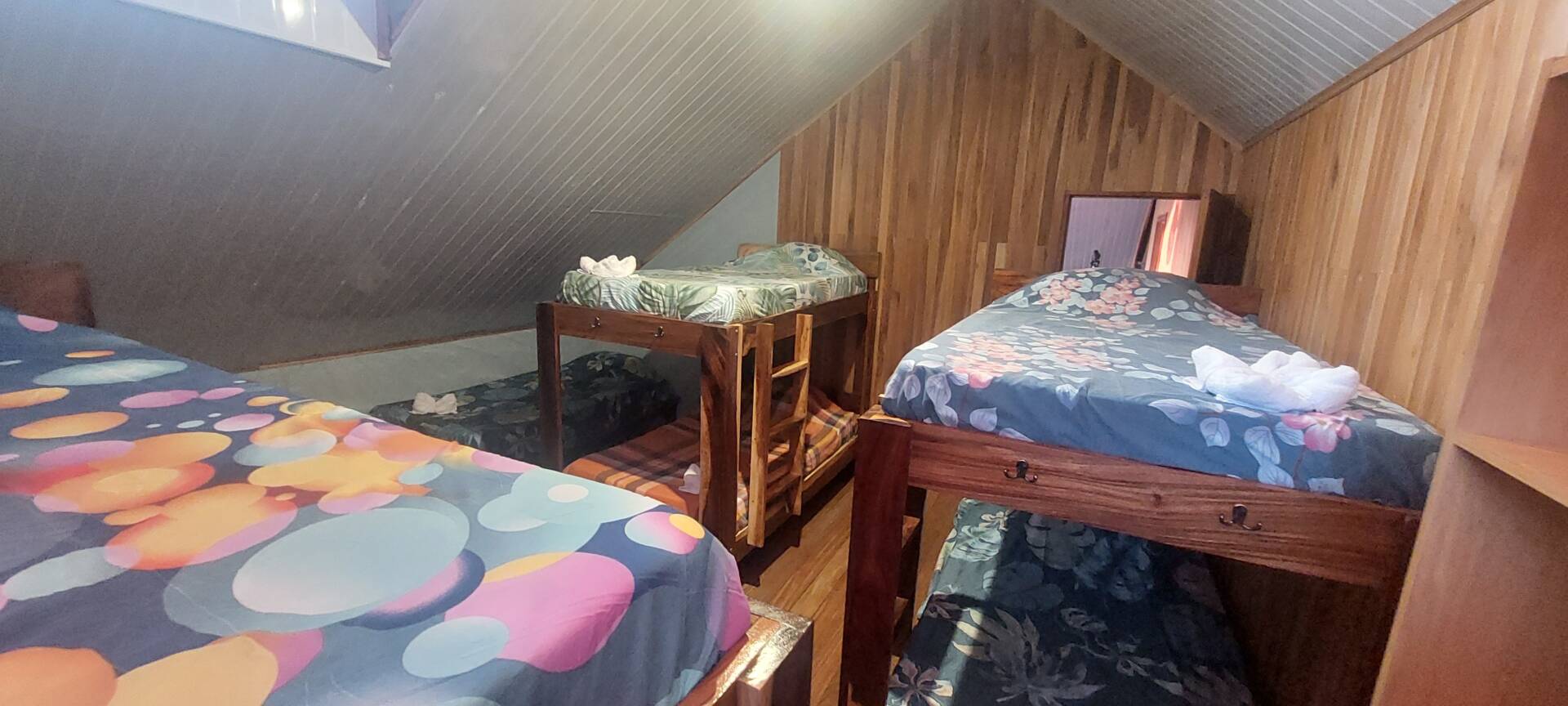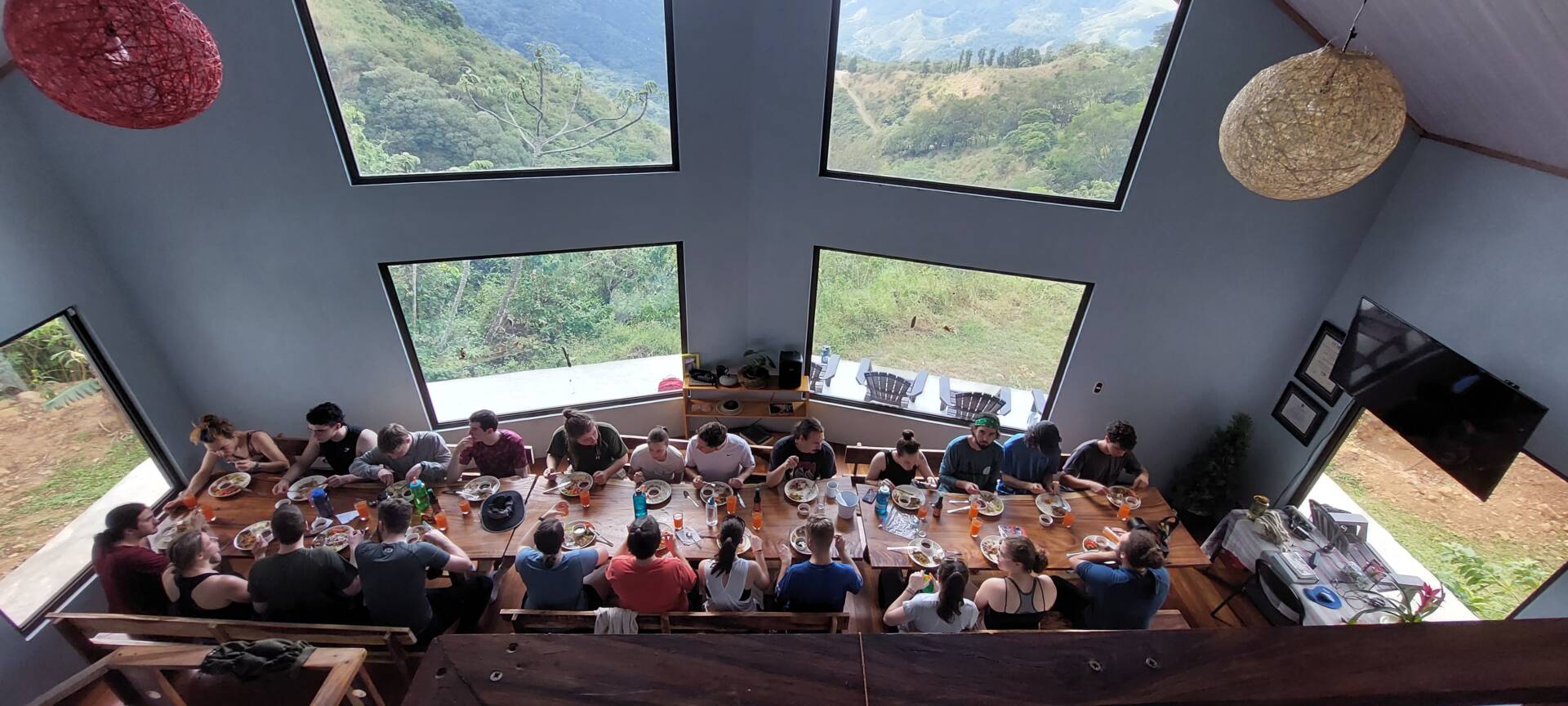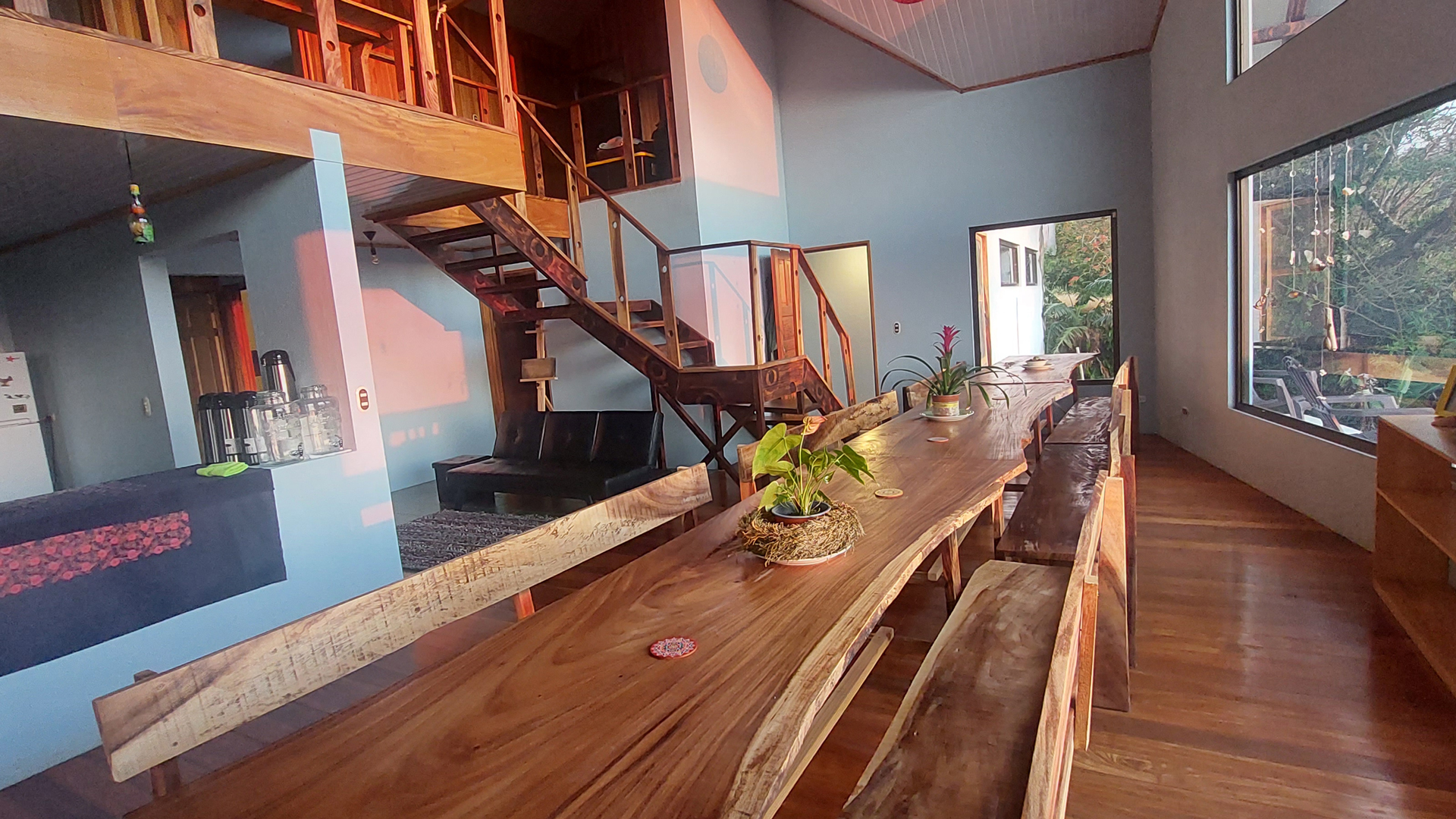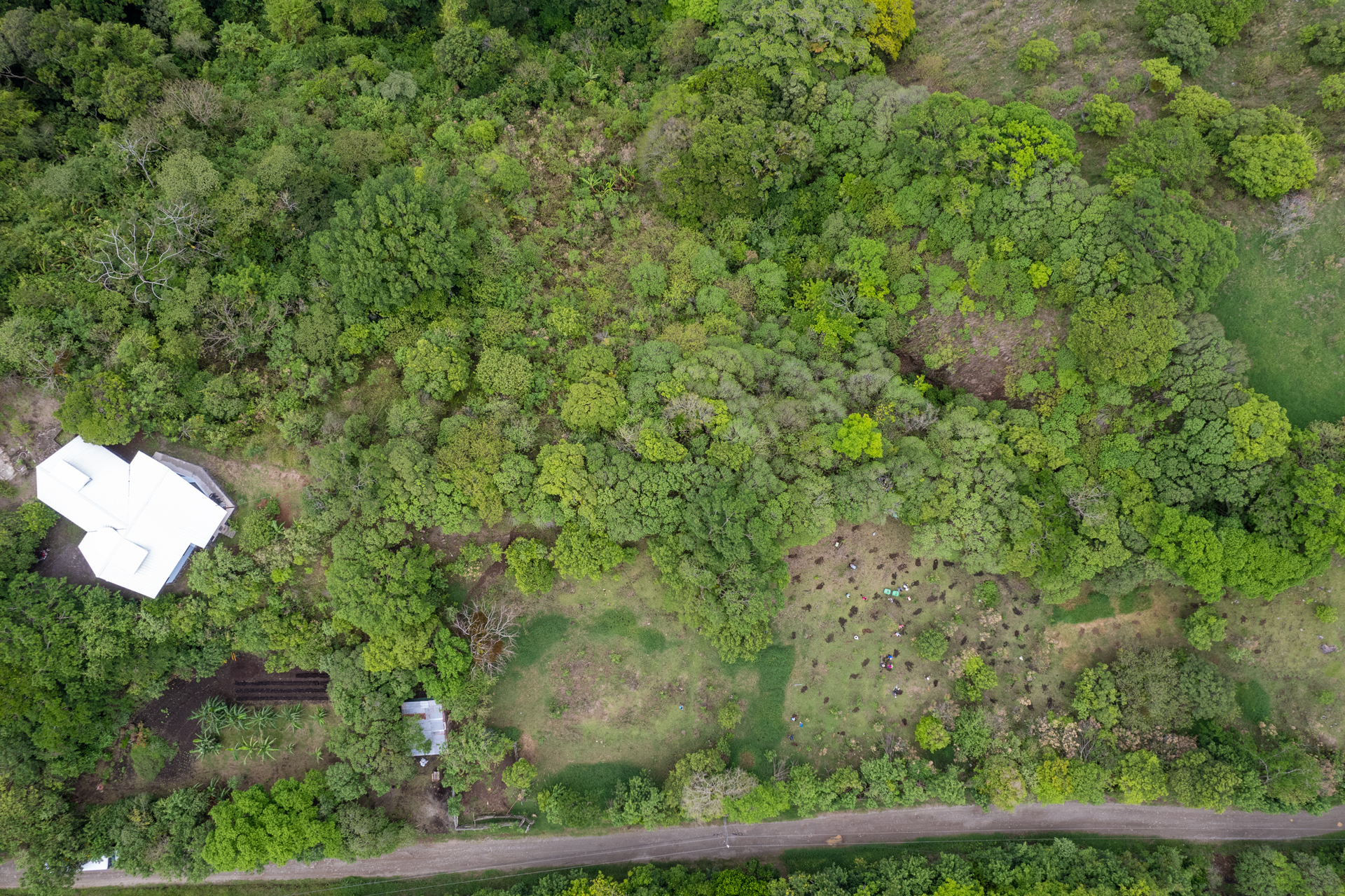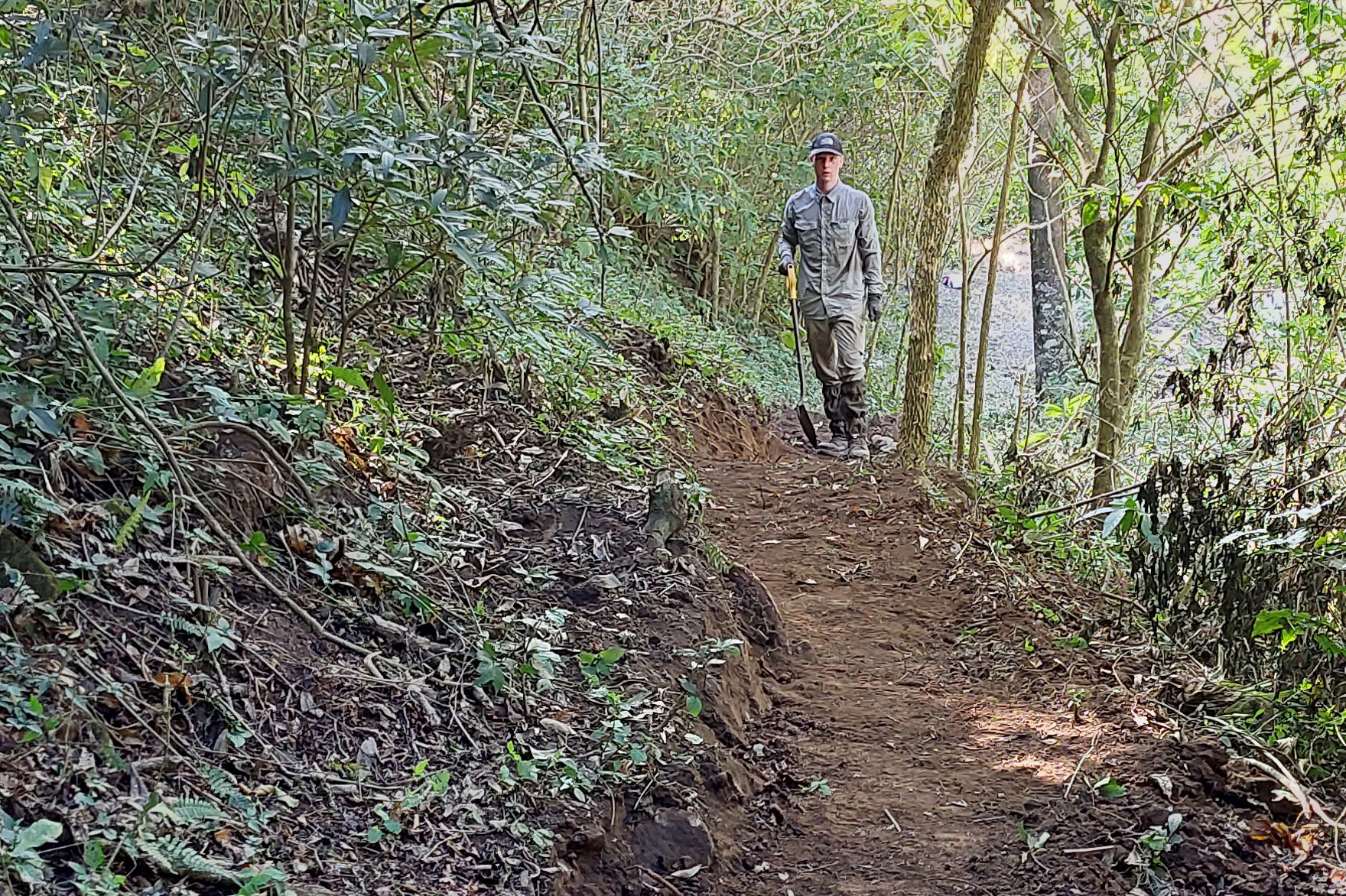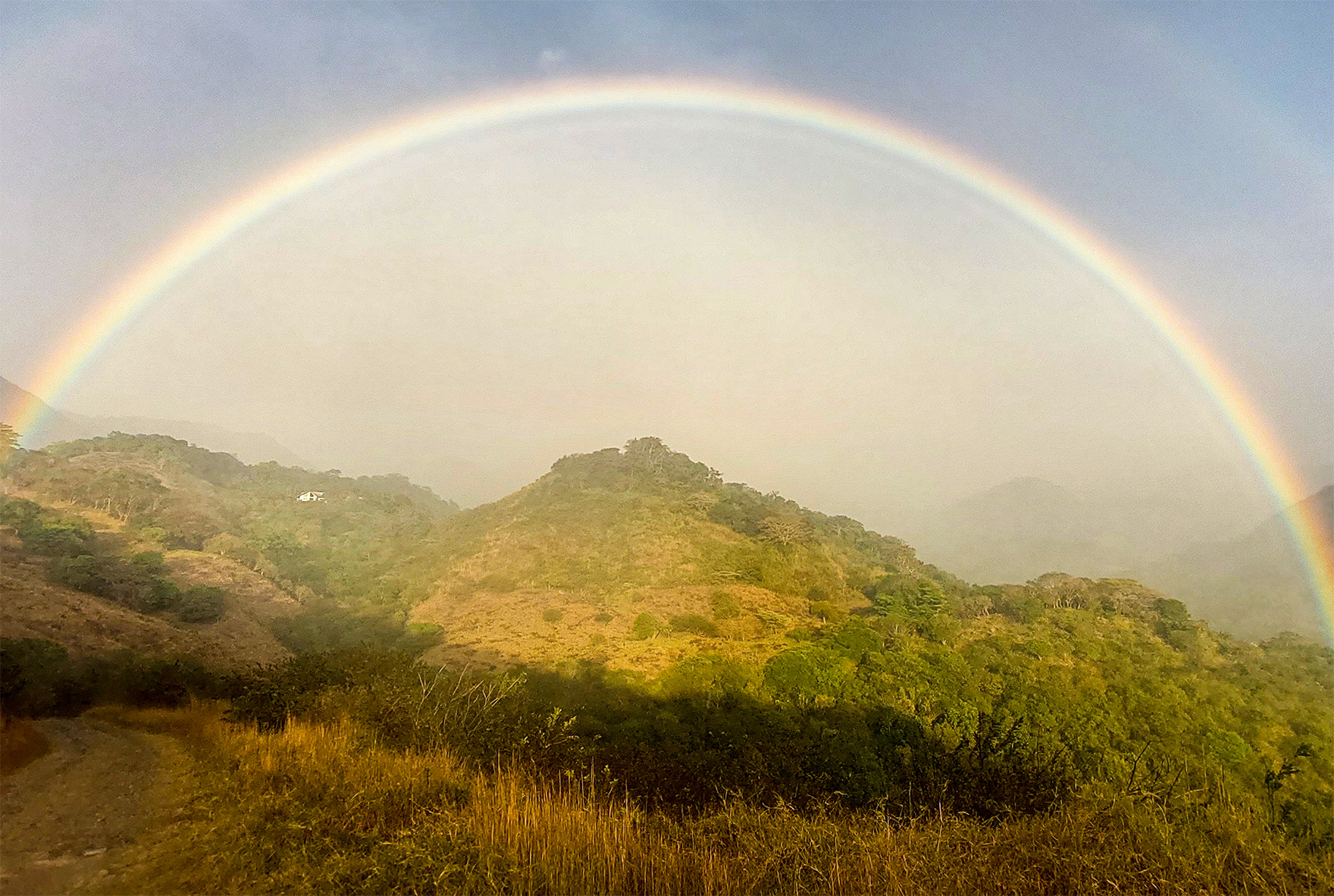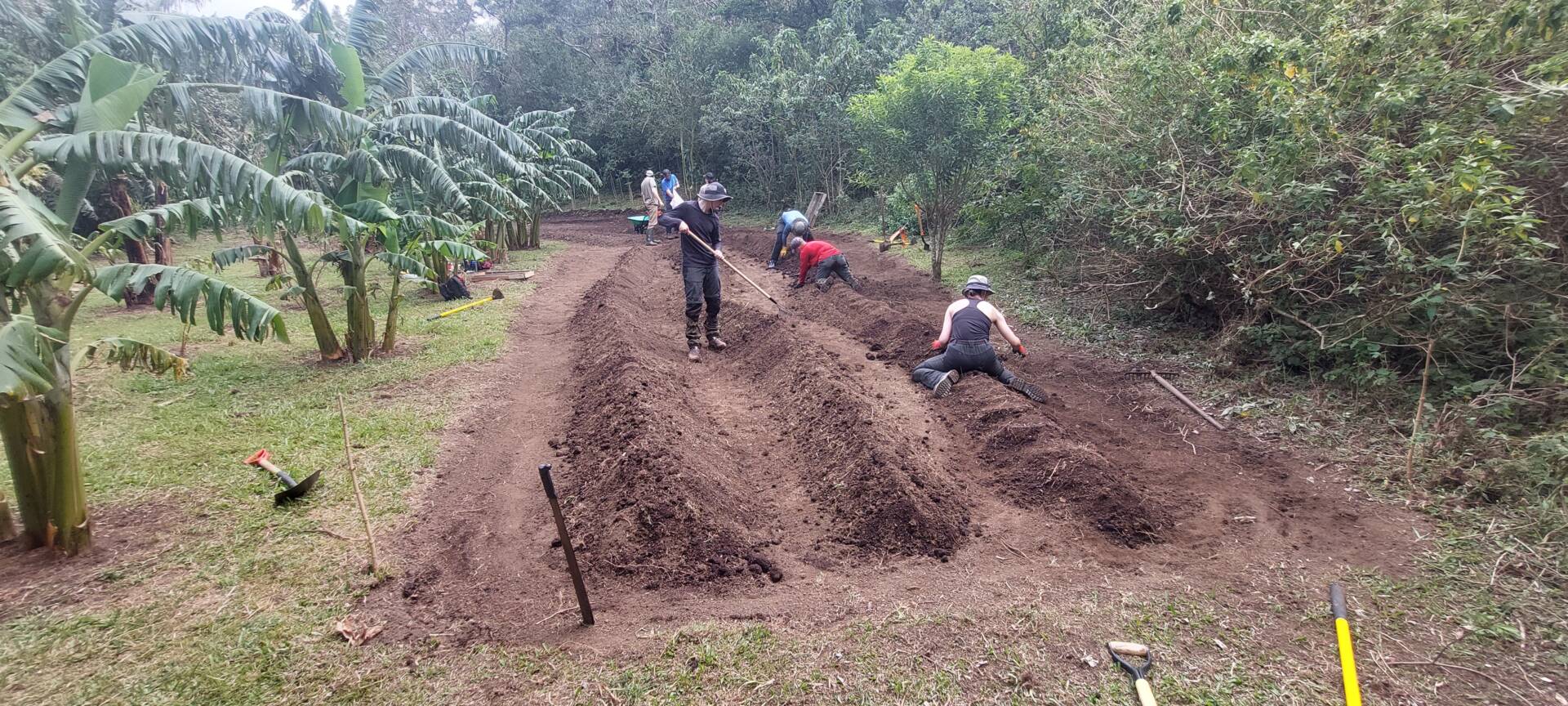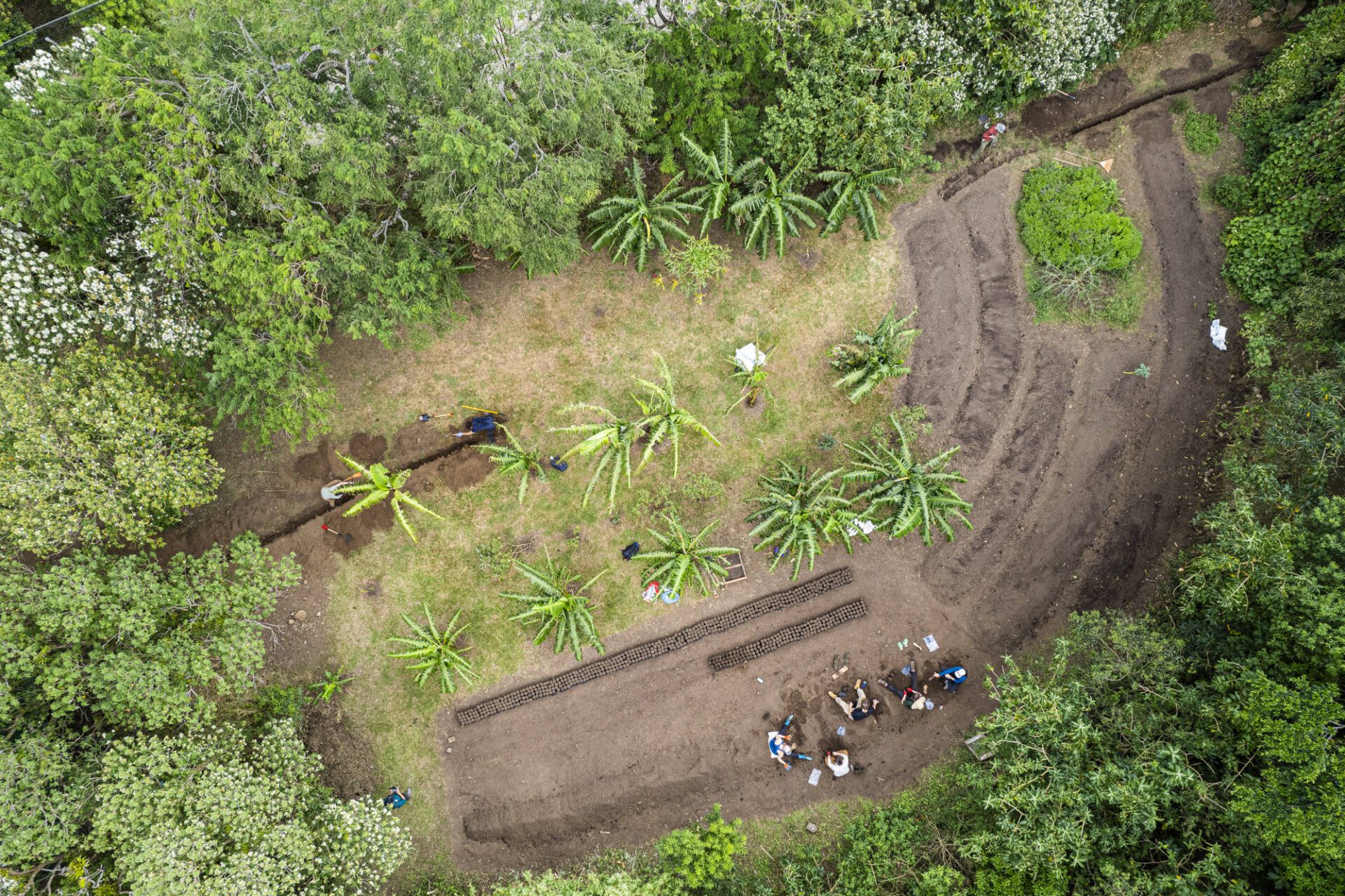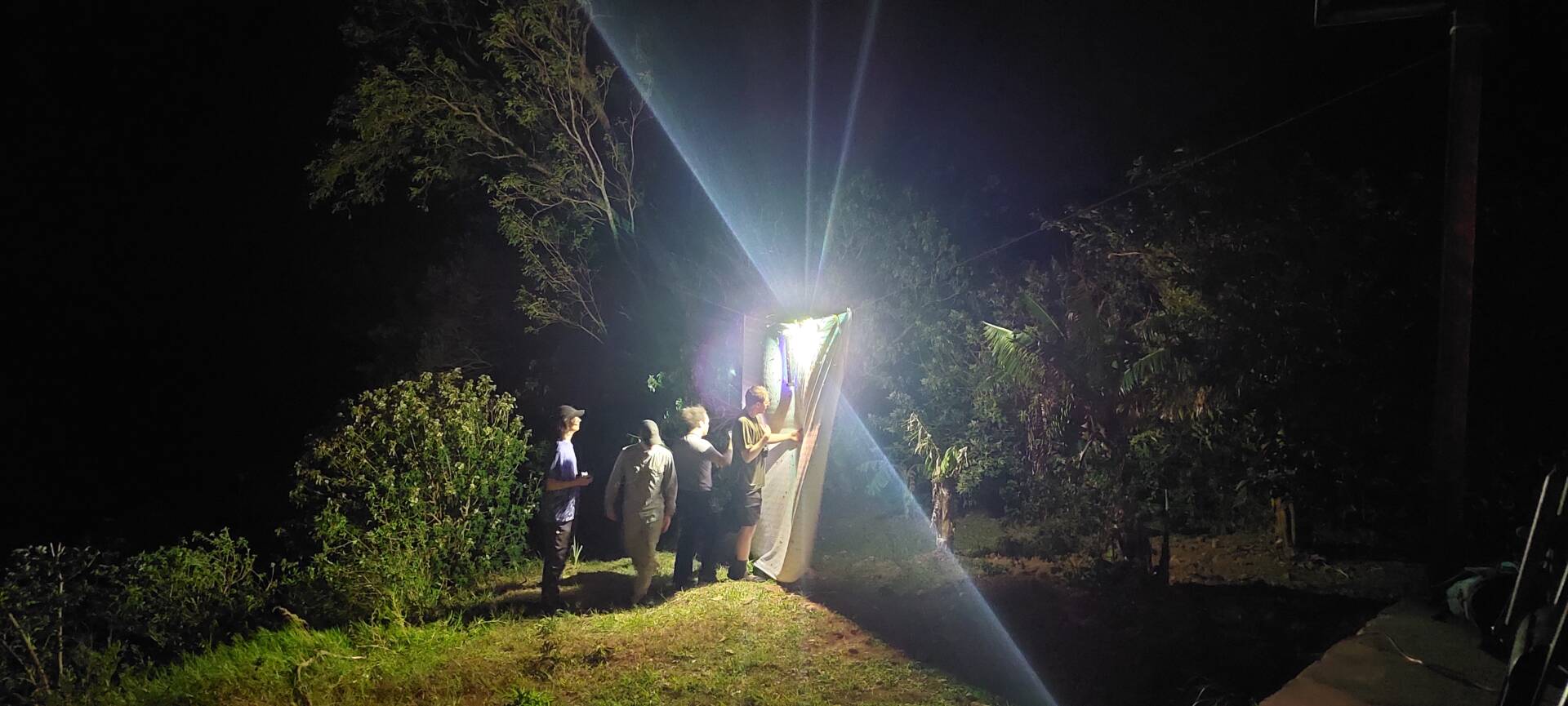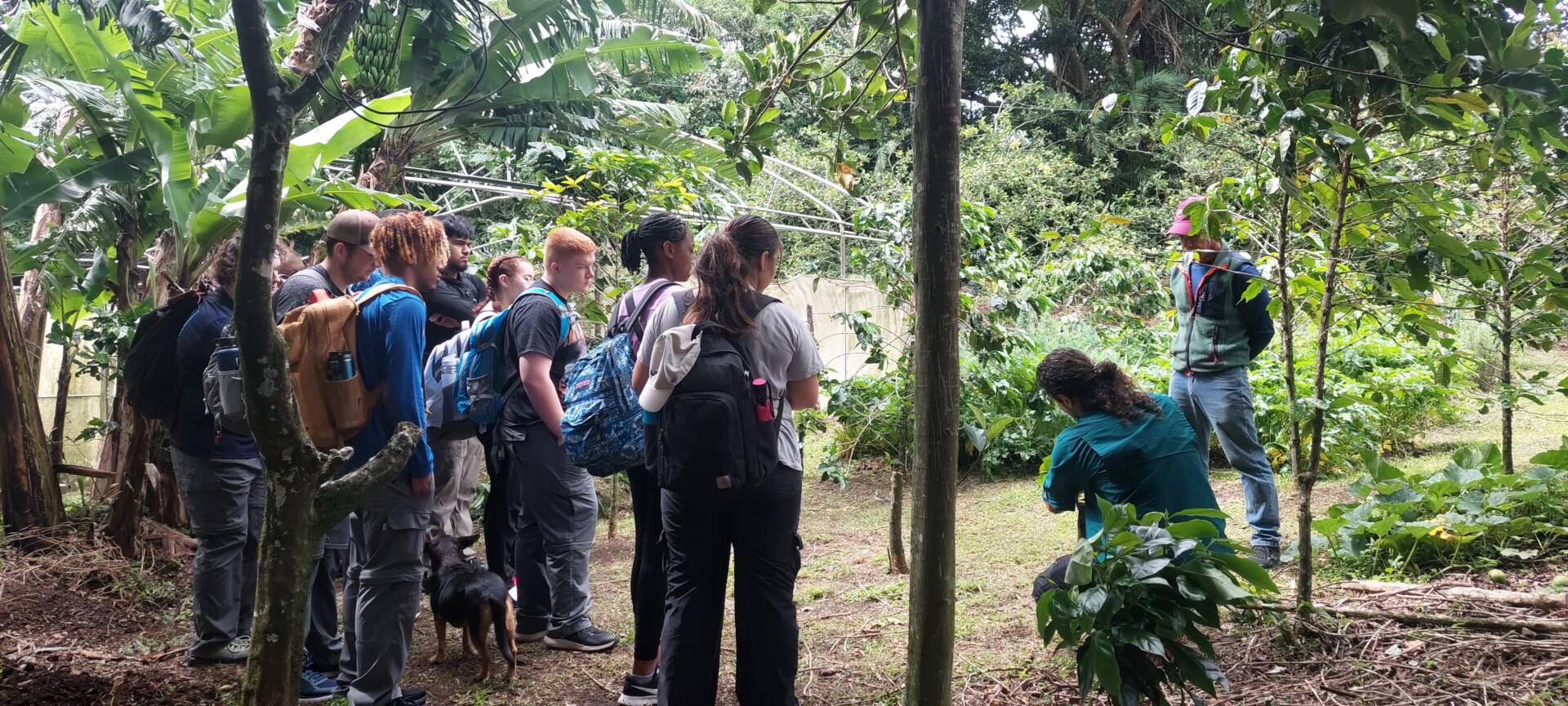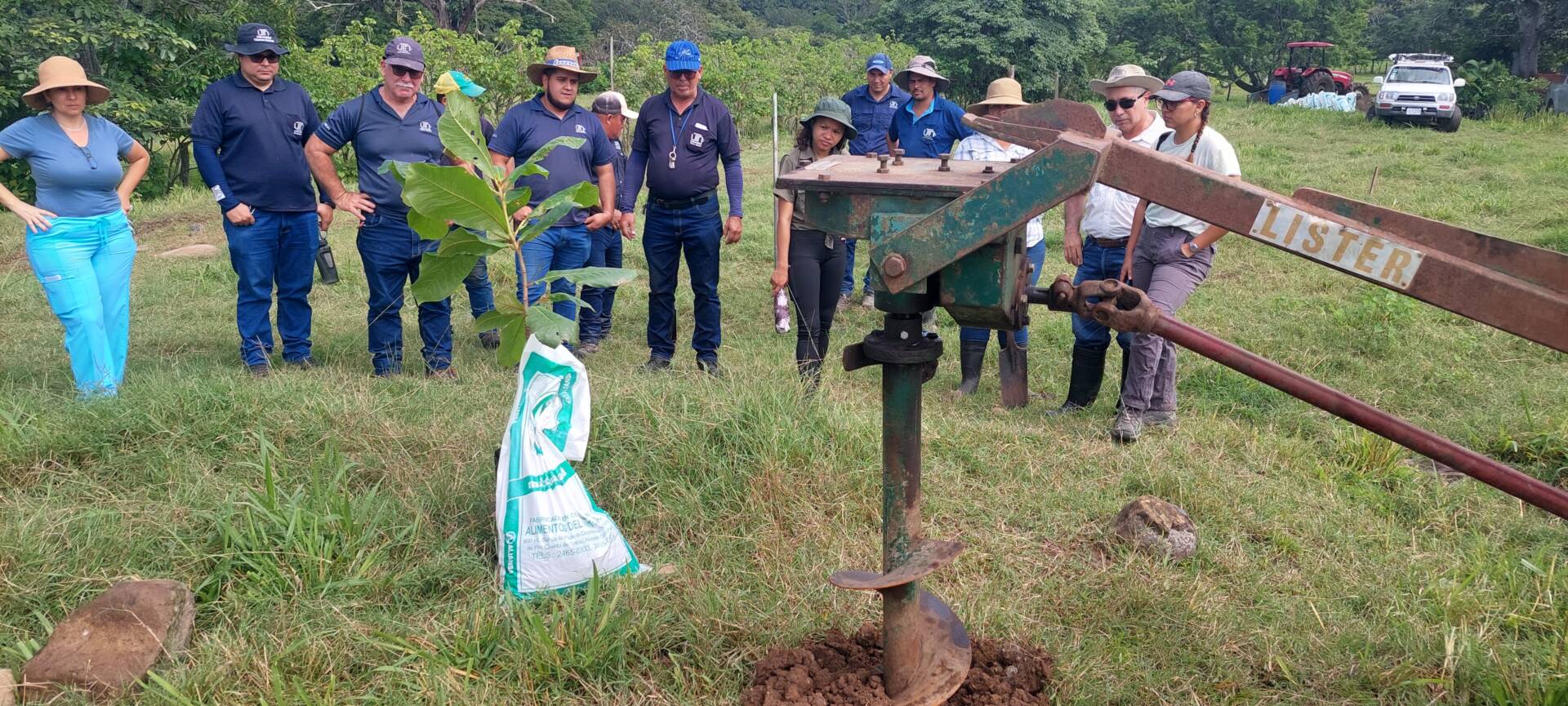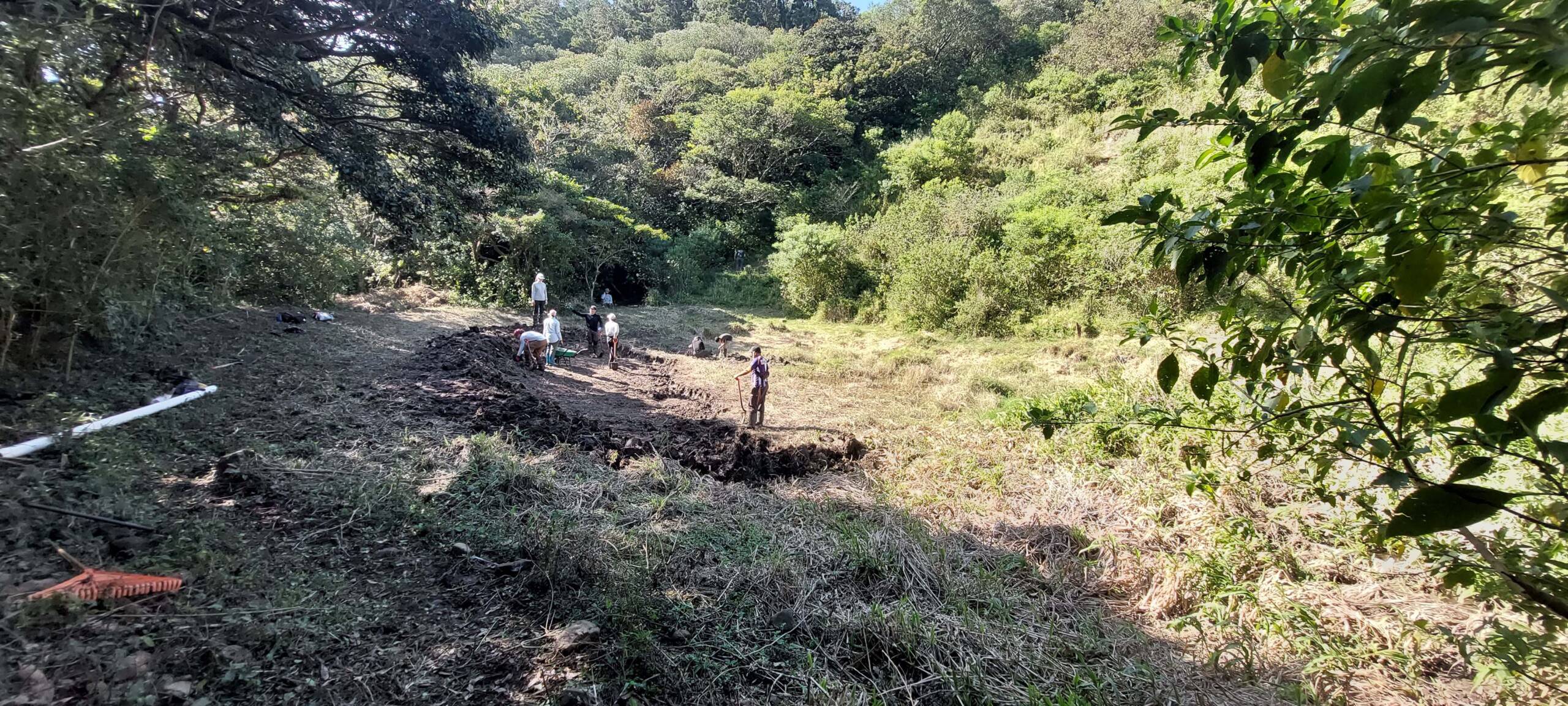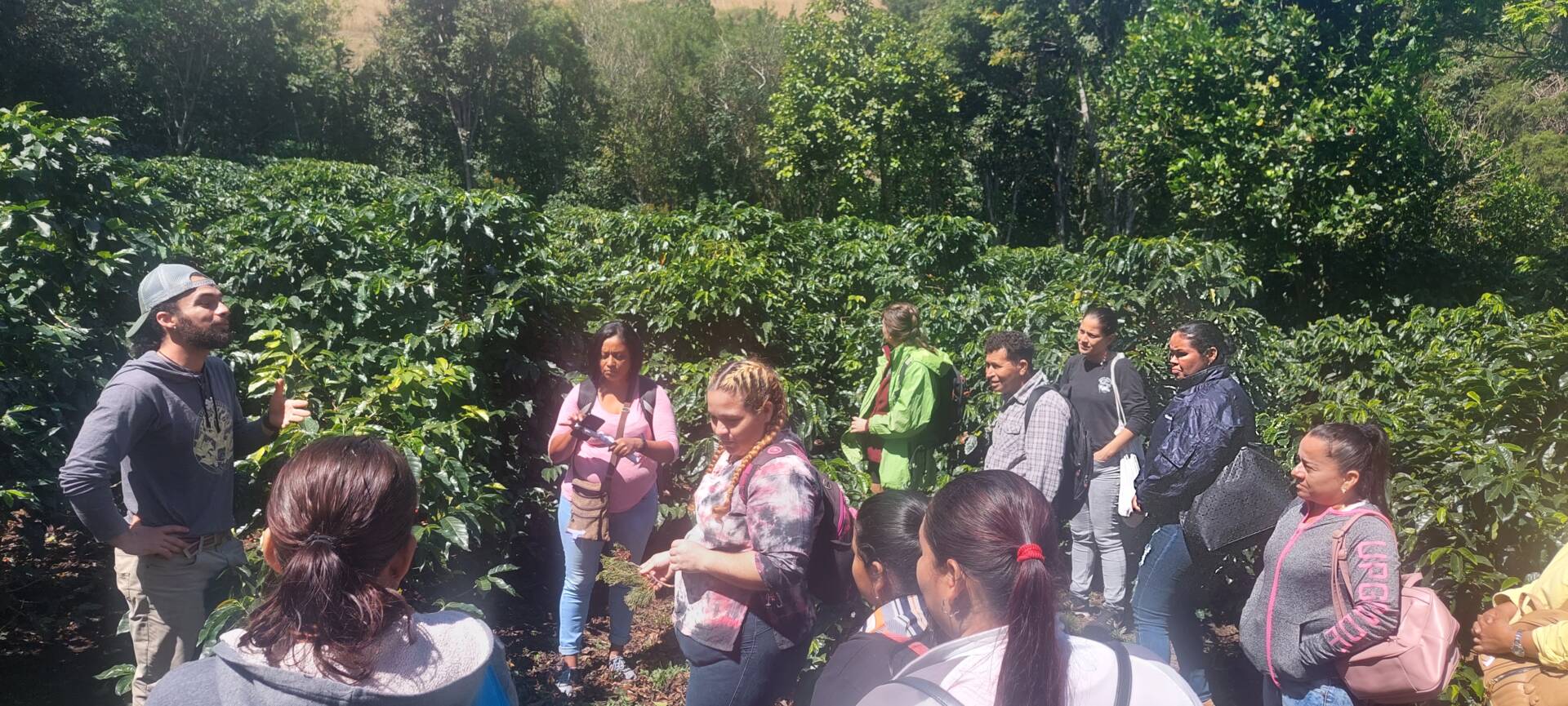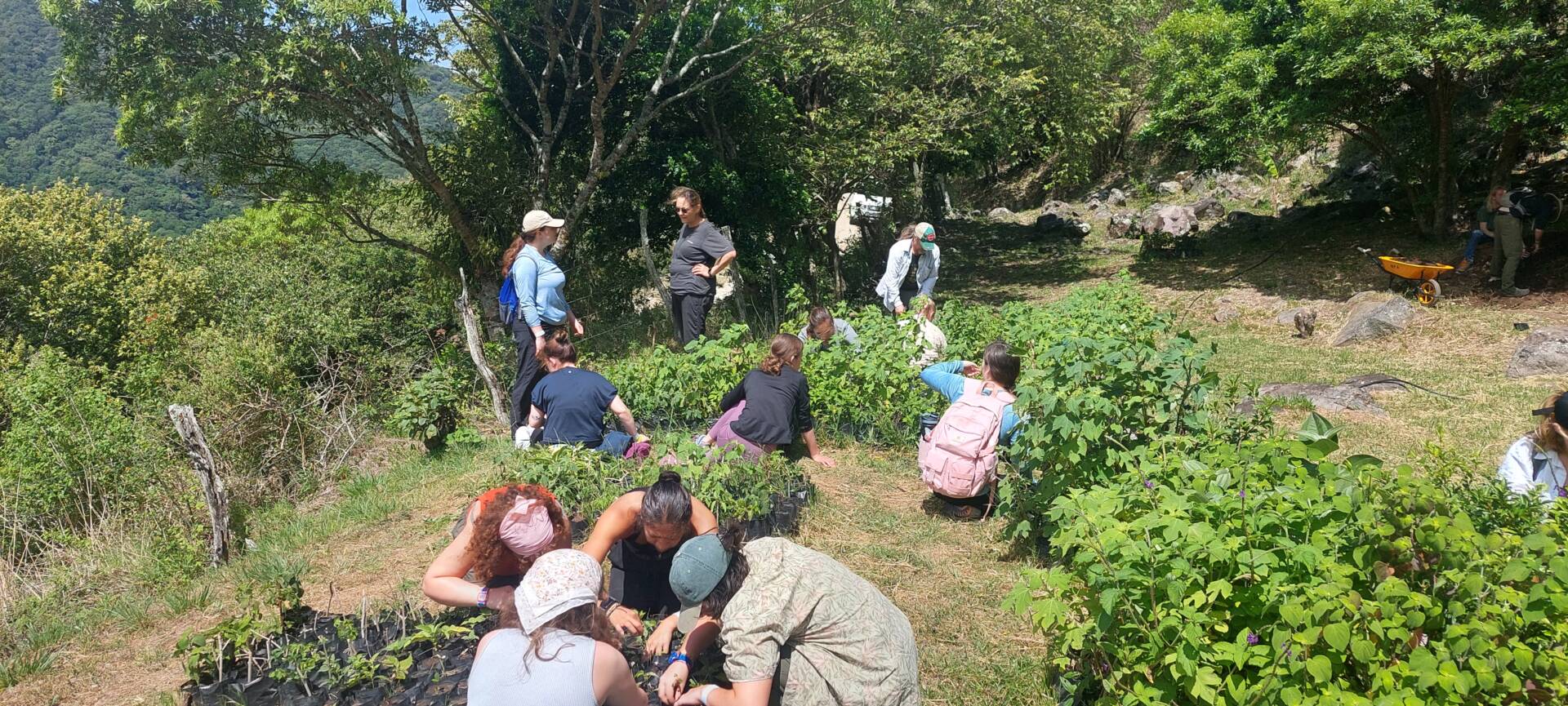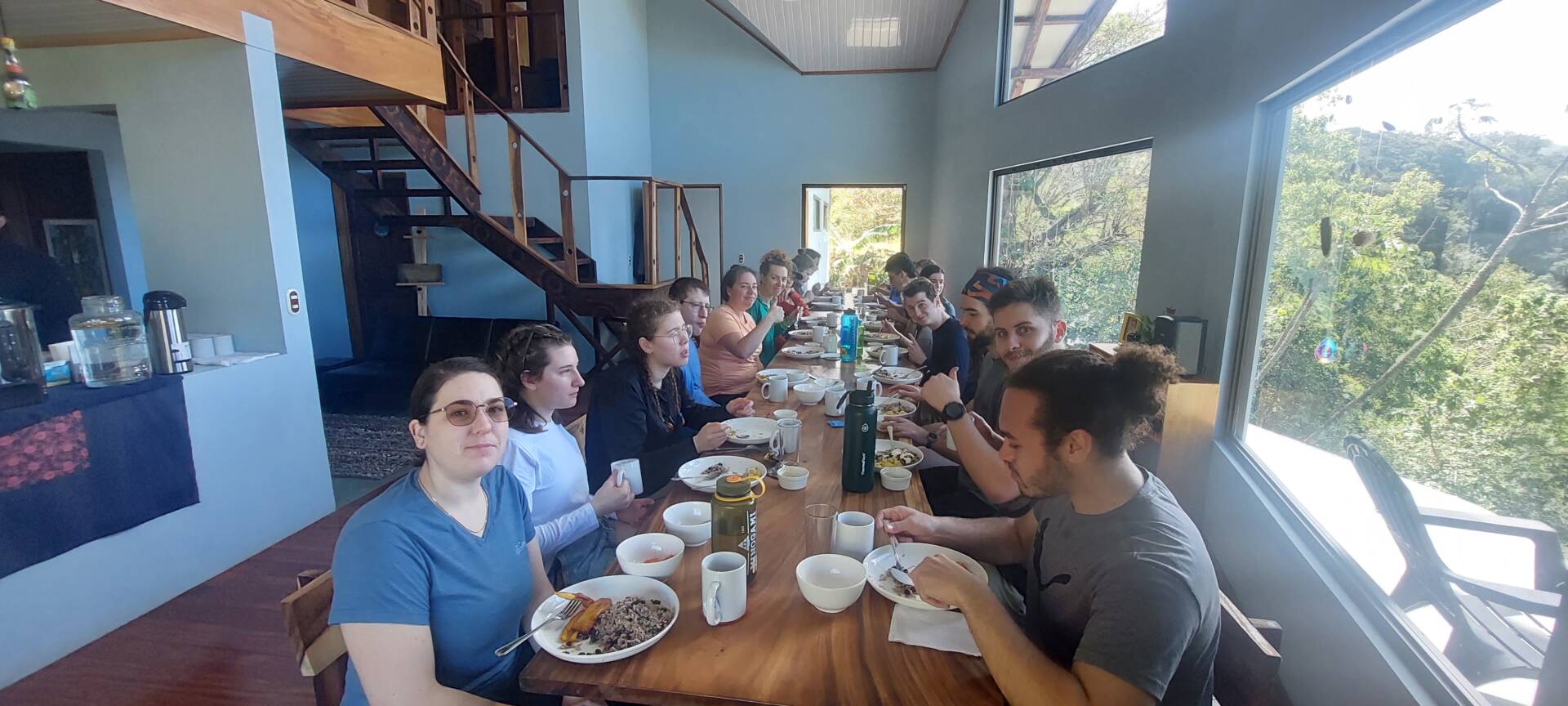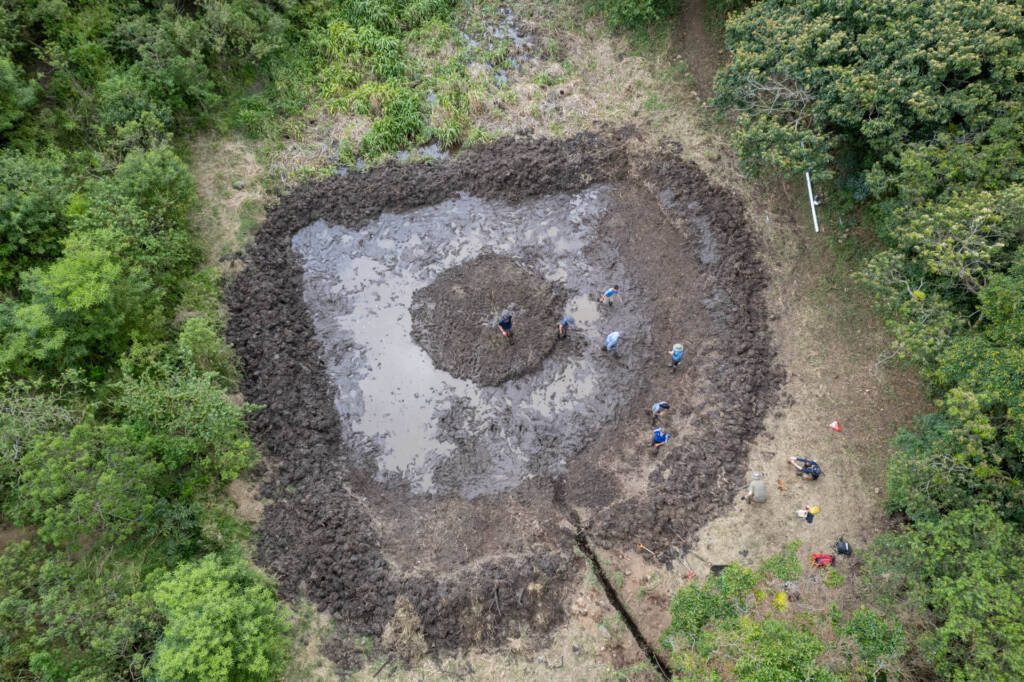Tropical Agroforestry Institute, Monteverde, Costa Rica
The Tropical Agroforestry Institute opened its doors in January 2024 to organized groups of students and farmers interested in learning about Agroforestry as a tool to enhance the economic and environmental performance of agricultural production systems.
The purpose of the institute is to accelerate the adoption of agroforestry and other best farming practices among farmers in the tropical and temperate regions.
The institute comprises a 30 hectare farm in the beautiful San Luis valley, an agricultural community perched in the Tilarán Mountain Range, right at the base of the Monteverde Cloud Forest Preserve, overlooking the Gulf of Nicoya.
The farm was managed under abusive conventional farming practices to produce beef cattle. Since 2018, the farm has gone through a process of decontamination and is now gradually being transformed into a resilient climate-smart agroecosystem.
The farm is part of the Bellbird Biological Corridor, a 80,000-hectare territory where the Three-Wattled Bellbird (Procnias tricarunculatus), a critically endangered altitudinal migratory bird species, has lost most of its habitat due to the expansion of the agricultural frontier. Alternative agricultural systems such as Agroforestry models are a valuable tool for promoting the recovery of the ecological integrity at the landscape level. They provide tangible economic alternatives to farmers and capacity building for climate change adaptation.
The Facilities
The 6-bedroom, 4-bathroom facility has been adapted to comfortably host 25 people. Two rooms are on a separate wing, which is ideal for faculty and teaching assistants. Three Costa Rican-style meals are prepared fresh every day and served in the dining hall, which is also an ideal space for lectures, workshops and presentations. The institute is equipped with Starlink high-speed internet and a 54´´ smart tv which can be connected to Apple or PC computers via Bluetooth or HDMI.
Biodiversity conservation, research and ecotourism
The institute`s grounds include an area for absolute conservation, ecotourism and research activities. This area is vital for biodiversity conservation as it acts as a stepping stone corridor that connects the lower San Luis valley with the Monteverde Reserve complex. It is also vital for water conservation where three natural springs have been identified and protected. These springs feed a permanent tributary of the San Luis River and are surrounded by a riparian buffer that serves as a corridor for wildlife migration, including species such as mountain lions, ocelots, margays, capuchin monkeys, agouties and coatis.
Working farm
The farm at the institute serves as a living classroom and experimentation laboratory to carry out educational activities and research on agroforestry and best farming practices. The purpose is to demonstrate how to restore the natural productivity of the land by incorporating agroecological principles that substitute external inputs with ecological processes.
Indigenous approach mixed with modern agroforestry science and technology
The main differentiating factor of the institute`s farm is that it incorporates the worldview in agriculture from the indigenous farmers of Talamanca. This approach is complemented with the incorporation of modern agroforestry science and technology in order to create an economically viable, but also philosophically and spiritually strong agroecosystem. We hope to inspire farmers to adopt agroforestry for reasons beyond the economic and environmental advantages that it provides. Please watch this video on the Agroforestry of Talamanca.
Research Projects
The Institute facilitates research programs to advance towards the ecological restoration of the Bellbird Biological Corridor. Researchers from any discipline are invited to join the institute`s efforts to promote the adoption of agroforestry and conservation agriculture practices.
Training Programs
Education is the main instrument for agroforestry adoption at the institute. Three distinctive programs are offered.
1. Learning Agroforestry
Agroforestry training programs may be designed and executed taking into consideration the specific objectives of the institution in charge of the program (e.g. universities, colleges, agencies). A typical program may range from one to two weeks, but it can be extended to a month or an entire semester. All of our programs are customizable and they include modules in agroforestry systems design, implementation and management. Modules on biodiversity, language and culture are transversal throughout the length of our programs. All modules are taught employing an experiential learning approach.
The institute`s hallmark program
This consists of a two-week journey exploring, practicing and learning agroforestry in 6 different tropical life-zones, from the cool mountains to the warm coastal areas spanning from blackberry to coffee, cacao, bananas and coconut farms. Participants will be learning by doing while working and exchanging knowledge directly with farmers, helping to complete projects, optimizing farming models, and designing new farming systems and applications (e.g. drip irrigation with solar water pumping systems, installing biodigesters, learning how to make and use cultures of native microorganisms, etc.). This program is designed to help more farmers adopt agroforestry applications and concepts throughout Costa Rica, therefore creating a transformative impact in rural communities while learning best farming practices and entrepreneurship. The journey ends in the Bribri-Cabécar indigenous territory, where professors and program participants become students of the indigenous farmers who still practice the ancient art of ancestral agroforestry. Maximum group size is 20 participants
Microfinancing agroforestry
One important element in our program is that tuition fees include a contribution to the farmer`s microfinance fund. This fund is designed to materialize agroforestry and best farming practices on the farms, where farmers interested in optimizing their farming systems may request funds from the institute at a minimal interest rate. This requirement enhances adoptability, as the farmers perceive the system enhancement as an investment and not as a gift.
2. For farmers
The microfinance fund is also designed to provide the economic content to help subsidize the cost of providing technology transfer and training sessions on agroforestry and best farming practices to local farmers in Costa Rica. Organized groups of farmers such as agricultural associations, cooperatives, extension agencies, government and non government institutions are invited to join the institute`s efforts to promote the adoption of agroforestry. Farmer`s training programs are also taught with an experiential learning emphasis. The courses are customizable in terms of the number of sessions and locations.
3. Agritourism
Farm visits
Our farm is located only 12 minutes (by vehicle) from the Monteverde Cloud Forest Biological Reserve. It is an ideal location to pair with a hike at the Reserve and learn about productive ecological restoration in the Bellbird Biological Corridor. Farm visits are guided by the institute`s staff. It includes a brief lecture on agroforestry and a guided tour of the ongoing projects. Each farm visit must be reserved ahead of time. Please contact info@agroforestryengineering.org to make your reservation. Entrance fees paid by visitors include a contribution to the farmer`s microfinance fund to help local farmers adopt agroforestry practices in the area.
Farm stays
Visitors to the Monteverde area have the opportunity to stay at the Tropical Agroforestry Lodge. For more information, please visit our lodge page.



